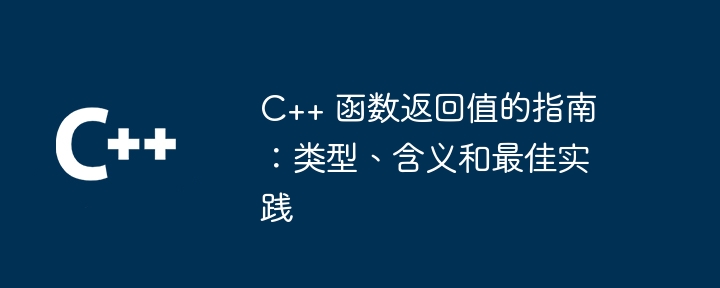
C functions can return various data types including basic types, derived types, void, references and pointers. The meaning of a function return value varies depending on the context, but usually represents calculation results, execution status, and a reference to an internal data structure. Best practices include choosing appropriate types, maintaining consistency, clear comments, avoiding returning global variables, and using exceptions for error handling.

C Function Return Value Guide: Types, Meanings, and Best Practices
Types
C functions can return various data types, including:
Meaning
The meaning of a function return value varies depending on the context, but generally means the following:
Best Practices
When writing C function return values, you should follow the following best practices:
Practical case
The following example demonstrates the use of function return values:
int calculateSum(int a, int b) {
return a + b;
}
void printMessage(string message) {
cout << message << endl;
}
bool isPrime(int number) {
for (int i = 2; i <= number / 2; ++i) {
if (number % i == 0) {
return false;
}
}
return true;
}calculateSum Return The sum of two numbers. printMessage Prints the given message but returns no value. isPrime Checks whether a number is prime and returns a Boolean value. The above is the detailed content of A guide to C++ function return values: types, meanings, and best practices. For more information, please follow other related articles on the PHP Chinese website!
 What is the return value of the function
What is the return value of the function
 What are the differences between c++ and c language
What are the differences between c++ and c language
 Recommended learning order for c++ and python
Recommended learning order for c++ and python
 Cost-effectiveness analysis of learning python and c++
Cost-effectiveness analysis of learning python and c++
 Is c language the same as c++?
Is c language the same as c++?
 Which is better to learn first, c language or c++?
Which is better to learn first, c language or c++?
 The difference and connection between c language and c++
The difference and connection between c language and c++
 C++ software Chinese change tutorial
C++ software Chinese change tutorial




